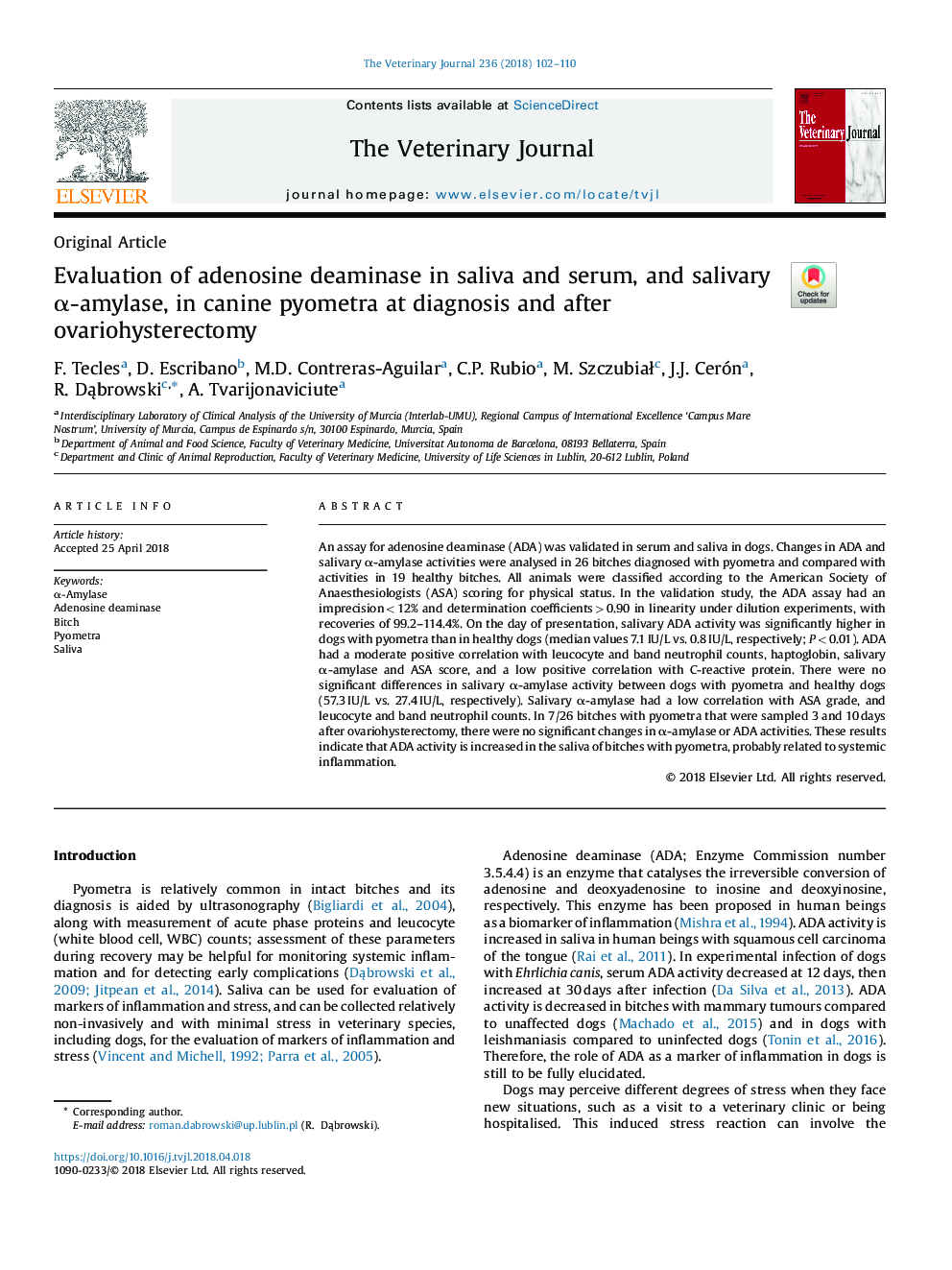| Article ID | Journal | Published Year | Pages | File Type |
|---|---|---|---|---|
| 8504864 | The Veterinary Journal | 2018 | 9 Pages |
Abstract
An assay for adenosine deaminase (ADA) was validated in serum and saliva in dogs. Changes in ADA and salivary α-amylase activities were analysed in 26 bitches diagnosed with pyometra and compared with activities in 19 healthy bitches. All animals were classified according to the American Society of Anaesthesiologists (ASA) scoring for physical status. In the validation study, the ADA assay had an imprecision < 12% and determination coefficients > 0.90 in linearity under dilution experiments, with recoveries of 99.2-114.4%. On the day of presentation, salivary ADA activity was significantly higher in dogs with pyometra than in healthy dogs (median values 7.1 IU/L vs. 0.8 IU/L, respectively; P < 0.01). ADA had a moderate positive correlation with leucocyte and band neutrophil counts, haptoglobin, salivary α-amylase and ASA score, and a low positive correlation with C-reactive protein. There were no significant differences in salivary α-amylase activity between dogs with pyometra and healthy dogs (57.3 IU/L vs. 27.4 IU/L, respectively). Salivary α-amylase had a low correlation with ASA grade, and leucocyte and band neutrophil counts. In 7/26 bitches with pyometra that were sampled 3 and 10 days after ovariohysterectomy, there were no significant changes in α-amylase or ADA activities. These results indicate that ADA activity is increased in the saliva of bitches with pyometra, probably related to systemic inflammation.
Related Topics
Life Sciences
Agricultural and Biological Sciences
Animal Science and Zoology
Authors
F. Tecles, D. Escribano, M.D. Contreras-Aguilar, C.P. Rubio, M. SzczubiaÅ, J.J. Cerón, R. DÄ
browski, A. Tvarijonaviciute,
